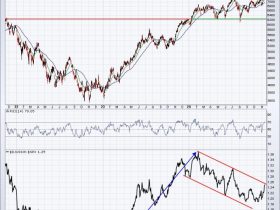With markets showing signs of extreme overbought conditions, investors are left wondering whether this is a positive or negative sign for stocks. Overbought conditions occur when the price of a stock or market index has risen rapidly and strongly, leading to potential concerns about a forthcoming correction. While the term overbought may sound alarming, it does not necessarily indicate an immediate downturn in stocks. In fact, the interpretation of overbought conditions can vary depending on market dynamics and investor sentiment.
One school of thought suggests that overbought conditions are a bearish signal, indicating that a market or stock has risen too far, too fast, and is due for a pullback. Investors following this approach may view overbought conditions as a warning sign to take profits and reduce their exposure to the market. The fear of a looming correction can lead to selling pressure, creating a self-fulfilling prophecy as more investors exit their positions.
Conversely, some market participants argue that overbought conditions can be a bullish signal in certain circumstances. When a stock or market index reaches overbought levels, it may indicate strong upward momentum and investor confidence. In such cases, overbought conditions can persist for an extended period as buyers continue to support the upward trend. Investors who adopt a ride the trend strategy may choose to stay invested or even increase their positions during overbought conditions, expecting the rally to continue.
Ultimately, the interpretation of overbought conditions should consider a variety of factors, including market fundamentals, technical indicators, and investor behavior. For instance, if overbought conditions are accompanied by positive economic data, strong corporate earnings, or supportive monetary policies, the bullish case may outweigh concerns about potential pullbacks. On the other hand, if overbought conditions coincide with negative developments such as a slowdown in economic growth, geopolitical tensions, or excessive market speculation, the bearish case could gain prominence.
It is crucial for investors to exercise caution and conduct thorough analysis before making decisions based on overbought conditions. Utilizing a combination of technical analysis, fundamental research, and risk management strategies can help investors navigate volatile market environments and make informed choices. Additionally, maintaining a long-term perspective and focusing on the underlying value of investments can provide a solid foundation for weathering short-term market fluctuations.
In conclusion, while overbought conditions can signal potential risks for stocks, they can also present opportunities for savvy investors to capitalize on market trends. By staying vigilant, conducting comprehensive analysis, and being prepared for various scenarios, investors can navigate volatile market conditions and strive for long-term success.











